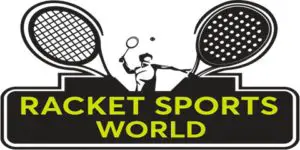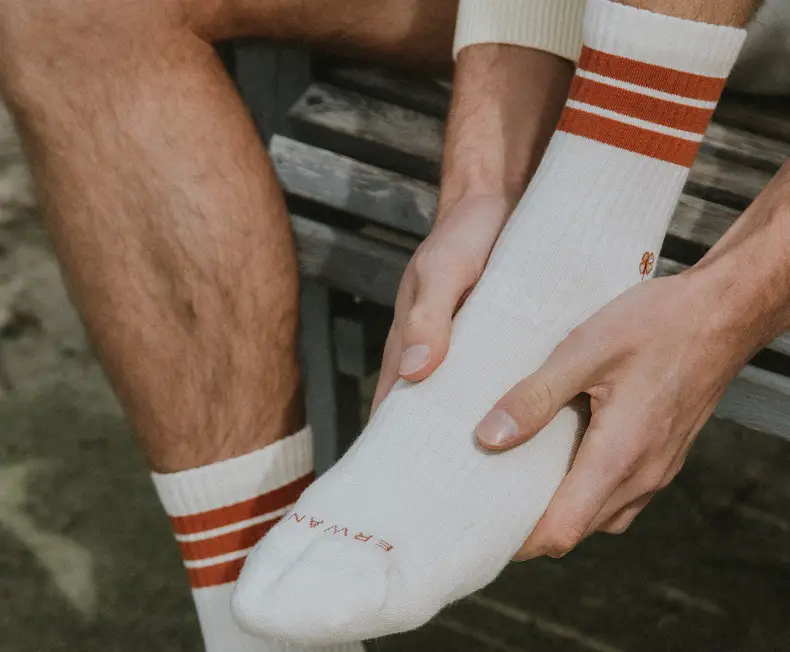Injuries and setbacks. The most frustrating part in sports in general and tennis in particular given its individual nature. Here we have Jean-Yves Aubone, a former ATP player and current coach, writing about how to deal with this issue in tennis.
You’ve put all that work in for months, or even years, and BAM, your elbow hurts so much you can’t grab the racket. Or your back locks up every time you bend down.
You’re nervous, but hopeful. You go see your sports doctor. Fingers crossed. Holding your breath, and unfortunately you get the bad news.
It’s time to take some time off.
If you’re a serious tennis player, this is something you’ll have to deal with at some point. It’s unavoidable. Tennis is a physical sport, and if there’s some imbalance in your body, or your technique is incorrect, you’re going to get hurt.
I’ve never met a single tennis player that didn’t have to take time off the court to recover from some sort of injury. So don’t panic! Everything will be fine if you take some of the following advice:
Table of Content
Don’t Go To Your General Practitioner or Family Doctor
Just like you wouldn’t go to a divorce lawyer when it’s a criminal case, don’t go to a doctor that isn’t specialized in working with athletes.
General practitioners see people for acute care or health maintenance. Not sports injuries. Most of them will say to take time off until the pain goes away. More often than not, that is not the entire answer.
More often than not, the answer is some sort of active rehab work, either through stretching and massaging, exercises to strengthen a weak area, or a combination of both.
Also Read:
- Best Tennis Vibration Dampeners for Beginners & Intermediate Players
- Pros & Cons of Using a Tennis Racket Dampener
A physical therapist can help you get started here. However, if they’re not 100% sure what the injury is, that’s where you have to go see a sports medicine doctor.
Sports medicine doctors will be able to run all the testing you need, such as x-rays. MRI’s, and all that fun stuff. They’re the ones that will be able to tell you with certainty what the problem is and what the path way forward is.
So if you can go see a sports medicine doctor first, go. If you can’t get an appointment soon enough, go to a physical therapist. If you can’t see either of them, wait until you can.
Getting Back on the Court
Rule #1 of getting back on the court, start slowly and with very little time on the court!
I’ve seen this happen so many times. A player’s pain goes away and on their first day back, they play the same amount of tennis as prior to the injury. That’s a big no no.
You have to work your body back into playing shape. Your physical therapist and sports medicine doctor should give you a plan as to how much time you should be spending on court as you start playing again. If they do not, then unfortunately you and your coach have to come up with the plan.
For example, maybe your first few practices will look like this:
- Day 1: 30 minutes on the court with 30% max intensity
- Day 2: 40 minutes on the court with 40% max intensity
- Day 3: 50 minutes on the court with 50% max intensity
And so on and so on.
This is just an example, not a science based formula proven by a researcher. But I’ve seen enough rehabilitation plans to know it looks something like this.
Technical Changes
There is a strong possibility that if you were injured, something in your technique was incorrect. It could be either in your grip, follow through, footwork (or lack of), or anything like that. Make sure your coach fixes that issue! If you don’t have a coach to help you with fixing the issue, find one!
This is very common for players with tennis elbow injuries. I’m yet to see one of these injuries where a player had perfect technique. Rather than fixing their technique though, they look for the cool new elbow brace to help them.
Well, I hope it’s a comfortable brace because they’re going to be wearing it and the elbow pain for the rest of their tennis careers.
Also Read:
The Game Will Come Back Quicker Than You Think
The biggest fear players have is they’ll forget everything they learned. This couldn’t be further from the truth.
Muscle memory doesn’t go away. The game will come back quicker than when you first learned how to play. Just give it some time.
The hardest thing to come back will be your fitness, but your ability to hit the ball as well as you did before will come back quicker than you expect.
But only IF you rehabbed properly.
Make Sure You Rehab Properly
I and many others have made the mistake of coming back too soon. We pretend we don’t feel any pain, but there’s some discomfort. We compensate by trying to use different parts of our body just so we can play the game we love.
Unfortunately, that creates other problems.
Our bodies are designed to play sports when our physical strengths are relatively balanced. If we start compensating for an injury by putting more weight on a different part of the body, we’re going to get hurt.
Each body part can only take so much force. If we overuse it, we’re just going to get another injury. We’ll be injured again before we know it.
And you might think it’s a separate injury when in fact, they’re all connected.
So take your time coming back. Follow the rehabilitation plan, and you’ll be able to enjoy the game for the rest of your life.
Enjoy Your Time Away
It can be deflating to have the game you love taken away for a certain period of time. You love playing. You love the exercise. You love the competition and the social aspect too. It’s a lot to lose at once!
But it’s not the only thing you can enjoy in life. Use this time to dive into other areas that you couldn’t because of your dedication to the game. Find your other hobbies. Find ways to exercise where you’re injured body part isn’t effected. And don’t be afraid to go watch your friends play! Just because your injured doesn’t mean you have to stay away from the game completely.


